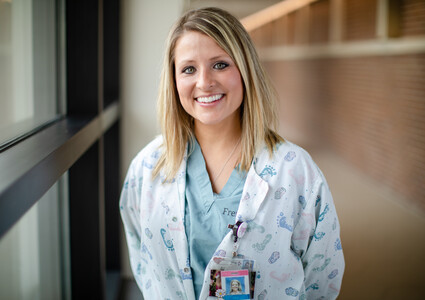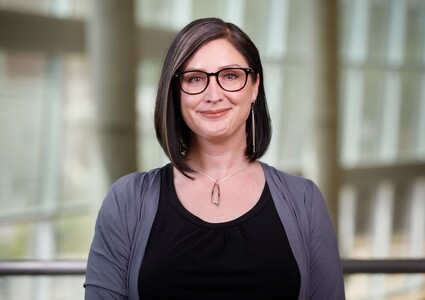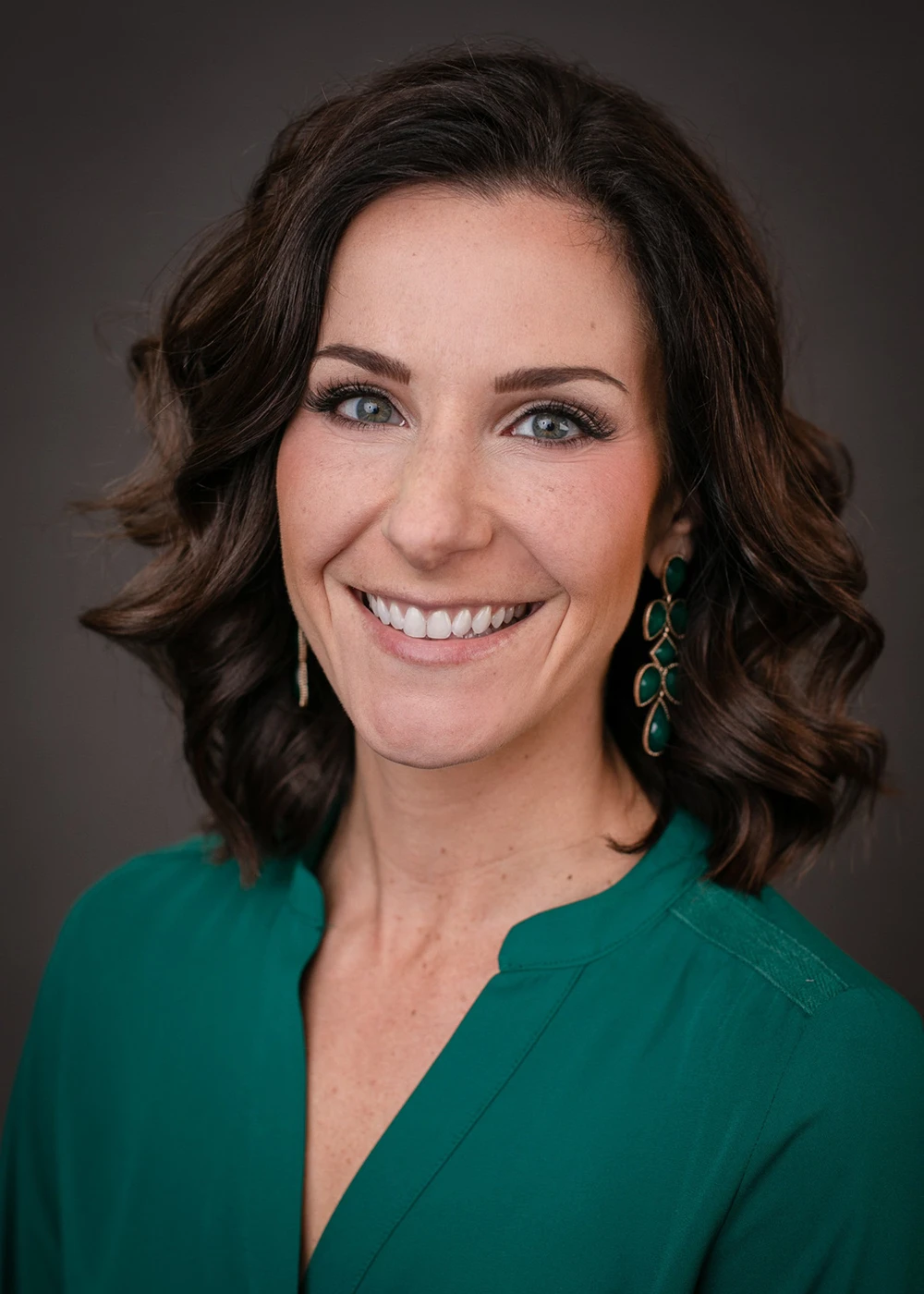





Women's Health
Methodist Bereavement Nurses Use The Meaning of Care To Help Families Grieve and Heal After Pregnancy Loss
Published: Sept. 15, 2022

Kirsten Hepburn Callaghan, BSN, RN, BA, will never forget the first family she cared for as a bereavement nurse at Methodist Physicians Clinic Women’s Center.
“I remember her face,” Hepburn Callaghan said of a mournful woman who was eight weeks pregnant and accompanied by her partner. “I remember her name, her situation. They were both over the moon with excitement about this first pregnancy of theirs. They were ready for that first ultrasound picture when the nurse practitioner couldn’t find a heartbeat. All of a sudden, this joyous moment becomes a surreal waking nightmare.”
“You don’t forget those screams and cries from a mother getting that kind of news,” said Alicia Zoucha, BSN, RN, C-EFM, CLC, a Methodist Fremont Health bereavement nurse who also remembers her first pregnancy loss case. “It’s the worst reminder that life can change in an instant.”
But thanks to a collaborative group of nurses from Methodist clinics, Methodist Women’s Hospital, Methodist Fremont Health and Methodist Jennie Edmundson Hospital families who experience pregnancy loss have the resources and compassionate support necessary to grieve and find healing.
When Loss Is Suspected

At Methodist, the role of bereavement nurses is simple but complex.
“It’s truly just meeting them where they’re at,” Zoucha said. “Listening and observing well enough to know what it is they need or want in that moment. Sometimes it’s physical touch – like your hand on their shoulder. Other times, it’s ordering Jimmy John’s, bringing them a coffee or securing a breast pump because despite everything this patient has been through, she still somehow so beautifully desires to donate her breastmilk.”
Those who care for patients at each Methodist hospital location attend quarterly meetings and receive training to ensure consistency when it comes to care and process. Together, they continually work to improve their response to families experiencing loss.
“In our clinic, if a patient comes in and it’s suspected that there’s a loss, they automatically get a second scan, which is read by a radiologist,” Hepburn Callaghan said. “Because the worst thing you can do for a patient is leave them with any doubt. And instead of just sending them up on their own to go sit in a diagnostic waiting room full of really pregnant women, I’ll actually walk them up a back way, and guide them directly into a room for that immediate follow-up scan. If they’re by themselves, I’ll offer to sit with them. If they’re with their partner, I’ll give them privacy. And a lot of times, the sonographer is already waiting for us in that room. So there’s minimal wait time.”

It’s another layer, she said, in the blanket of support that Methodist aims to provide grief-stricken families.
“It really takes the support of the entire clinic,” she said. “There’s a large team of individuals working to make sure that women who experience pregnancy loss aren’t further traumatized by their experience in the clinic or hospital. And that’s pretty incredible.”
But bereavement care isn’t only for families experiencing loss. Sometimes expectant families who’ve experienced loss in the past need support, too.
“I think that’s something that a lot of people don’t think about,” said Hepburn Callaghan, who’s experienced loss herself. “When you go through a pregnancy loss, it’s forever. You don’t get back that sense of excitement and joy the next time you get pregnant. You see it through this new lens.”
Next Steps
Methodist bereavement nurses often offer to make those first few “hard calls” for families, Zoucha said. More than once, she’s called around to various funeral homes to compare costs for families.
“Because a lot of times their question is, ‘What do we do now? What’s happens next?’ Their world has just crumbled,” she said. “And for a family trying to figure out how they’d even afford diapers, and now they have to pay for a funeral? A simple call on my part is nothing.”
But according to Hepburn Callaghan, the most common and most difficult question bereavement nurses get is this: “What did I do wrong?”
“And that just breaks my heart,” she added. “As a woman, I understand where that question comes from. But as a nurse, I understand that this is out of their control. So it’s my responsibility to help them understand that, too.”
Although the next steps in the process look different for every family, Zoucha said they’re always facilitated with The Meaning of Care.
“That means patient-centered,” she said. “It’s adopting the mindset that you’re prepared and ready to be whatever they need you to be right then and there, and well into the future.”
And it’s a privilege, Hepburn Callaghan said, to be part of a network of such dedicated caregivers with the same mindset.
“For patients reading this, I want them to know that their providers really are affected by their losses,” she said. “We have amazing providers who really care about what’s happening with their patients. They want to see them through it and see that they’re going to be OK. Patients don’t always see that part of it. But I do. And it makes me really proud.”
More Resources
- Learn more about Methodist’s pregnancy and newborn loss services.
- Access pregnancy and infant loss resources.


